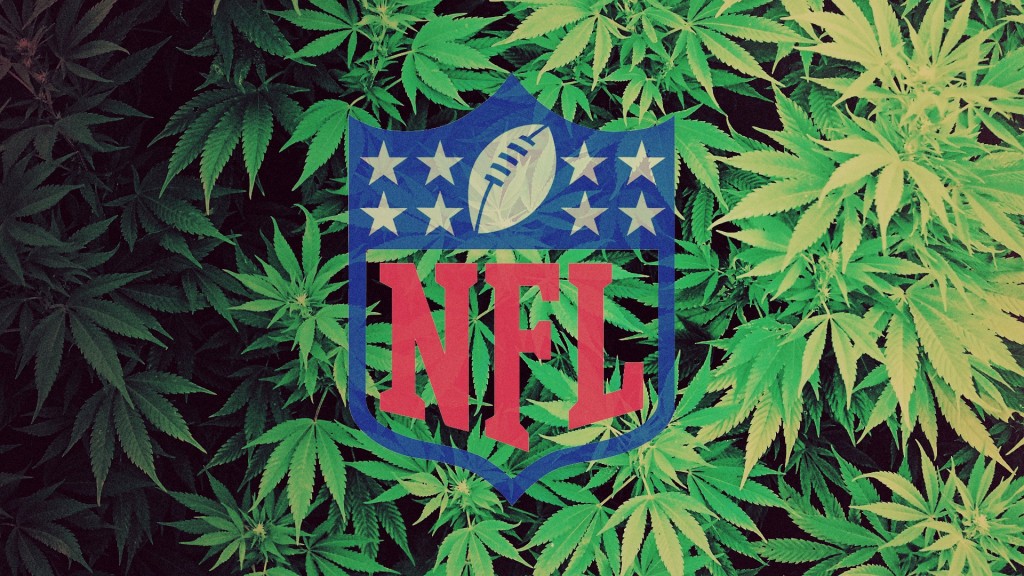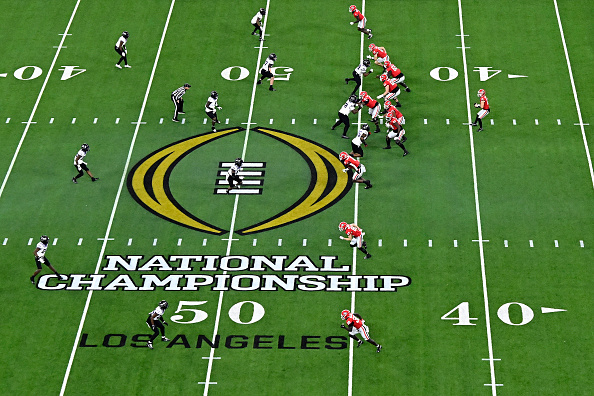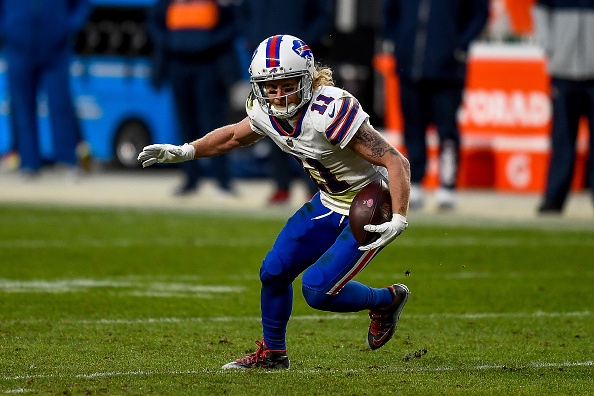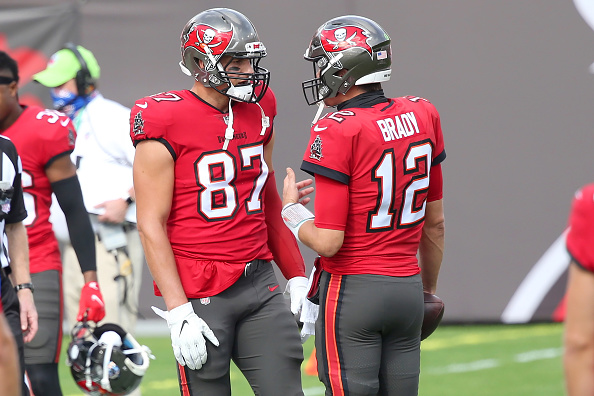The National Football League’s substance abuse policy is as strict as they come in the world of professional sports.
The document itself lists multiple prohibited substances which include many hard-hitting painkillers.
- Benzoylecgonine (cocaine) ? 150 ng/mL
- Delta 9-THC-carboxylic acid (marijuana) ? 35 ng/mL
- Synthetic Cannabinoids > 2.5 ng/mL
- Amphetamine and its analogs ? 300 ng/mL
- Opiates (total morphine and codeine) ? 300 ng/mL
- Opioids (e.g., hydrocodone, oxycodone) ? 300 ng/mL
- Phencyclidine (PCP) ? 25 ng/mL
- Methylenedioxymethamphetamine (“MDMA”) and its analogs ? 200 ng/mL
- Alcohol ? .06 g/dl (%)
Alcohol is prohibited only if a Player’s Treatment Plan explicitly prohibits alcohol, but all Players in Intervention Stages are tested for alcohol for clinical monitoring purposes. Discipline for alcohol use is imposed only if a Player’s Treatment Plan prohibits alcohol.
Information from NFL Substance Abuse Policy
The list’s second substance is, of course, one of the most controversial and disputed among them. Players and even the game’s biggest figures like Jerry Jones have come out defending the use of marijuana as a way to combat brain injuries.
Jones brought up the league’s policy against marijuana at the owners only meeting urging for it to be revised. Many players, including former offensive tackle Eugene Monroe, told the Washington Post that the use of pills affected his health and marijuana improved his quality of life.
“This pain is never going away. My body is damaged,” Monroe said. “I have to manage it somehow. Managing it with pills was slowly killing me. Now I’m able to function and be extremely efficient by figuring out how to use different formulations of cannabis.”
Martellus Bennett came out and stated on a podcast hosted by Chris Simms and Adam Lefkoe that a staggering amount of players use cannabis already. He emphasized that the pills used to deal with pain are man-made while the former is a natural substance.
“I want to say about 89 percent,” Bennett said. ““There are times of the year where your body just hurts so bad. You don’t want to be popping pills all the time. There are anti-inflammatory drugs you take so long that they start to eat at your liver, kidneys and things like that. A human-made that. God made weed.”
The players’ arguments in regard to recreational and prescription marijuana use to combat the effects of physical and mental pain seem to hold quite a bit of water.
According to a study released by the US National Library of Medicine National Institutes of Health, marijuana tests on mice showed promising results in brain function.
“Repeated administration of CBD (30 mg/kg i.p., 2 h after each daily stressor) increased hippocampal progenitor proliferation and neurogenesis in wild-type mice. Ganciclovir administration to GFAP-thymidine kinase (GFAP-TK) transgenic mice, which express thymidine kinase in adult neural progenitor cells, abrogated CBD-induced hippocampal neurogenesis. CBD administration prevented the anxiogenic effect of CUS in wild-type but not in GFAP-TK mice as evidenced in the novelty suppressed feeding test and the elevated plus maze. This anxiolytic effect of CBD involved the participation of the CB1 cannabinoid receptor, as CBD administration increased hippocampal anandamide levels and administration of the CB1-selective antagonist AM251 prevented CBD actions.”
In other words, the functioning of multiple parts of the brain was enhanced in multiple species of mice that were given the drug daily, which in turn caused the regeneration of brain cells.
But it didn’t stop there. Harvard psychiatrist and longtime NFL fan Lester Grinspoon penned an open letter to NFL commissioner Roger Goodell and insisted that the league begin funding its own studies on how the herb can help lower the risk of developing Chronic Traumatic Encephalopathy, CTE.
Given the severity of the problem, however, I think you, and the NFL, must go beyond simply following the medicine, and help lead the way by directly funding research to determine if cannabis—including preparations with no psychoactive effects, such as those with a high-cannabidiol (CBD) to tetrahydrocannabinol (THC) ratio—can indeed provide significant protection against the damage of repetitive concussions.
Already, many doctors and researchers believe that marijuana has incredibly powerful neuroprotective properties, an understanding based on both laboratory and clinical data.
– Lester Grinspoon M.D.
But not is all positive about marijuana. According to studies done by the official government drug abuse website, use of the drug can cause acute side effects such as impaired short-term memory, increased heart rate, anxiety, paranoia, and psychosis. Some long-term issues that may come with prolonged use including impaired learning, impaired coordination, sleep problems, the potential for addiction, increased risk of coughing, bronchitis, and schizophrenia in people with genetic vulnerability. The loss of an individual’s IQ, however, is associated with the use beginning in the pre-adult years as the brain itself is still growing to its final size, with threading of new neural pathways that could have their growth stunted by marijuana.
A New Zealand marijuana study also showed that the average IQ points lost fluctuated from six to eight points in total. To make matters more discouraging for early users, the same study showed that adults that stopped using the drug did not regain those lost points.
“These results suggest that marijuana has its strongest long-term impact on young people whose brains are still busy building new connections and maturing in other ways,” the study said. “The endocannabinoid system is known to play an important role in the proper formation of synapses—the connections between neurons—during early brain development, and a similar role has been proposed for the refinement of neural connections during adolescence.”
As the National Football League is obviously a paid profession, studies also showed the use of marijuana is linked to a 55 percent increase in industrial accidents, 85 percent more injuries, and a 75 percent chance of being an absent as a result of its use.
It is also important to mention that legal painkillers in the NFL include the drug Toradol.
Toradol has been an NFL player’s go-to drug to combat pain. According to an article by ESPN, players called it the “Lifeline” along with former Pittsburgh Steelers and Washington Redskins safety Ryan Clark calling the use of the drug a “ritual” during pregame.
The drug itself, along with other Nonsteroidal Anti-Inflammatory Drugs, NSAIDs, have numerous side effects.
| Serious side effects include: • heart attack • stroke • high blood pressure • heart failure from body swelling (fluid retention) • kidney problems including kidney failure • bleeding and ulcers in the stomach and intestine • low red blood cells (anemia) • life-threatening skin reactions • life-threatening allergic reactions • liver problems including liver failure • asthma attacks in people who have asthma |
Other side effects include: • stomach pain • constipation • diarrhea • gas • heartburn • nausea • vomiting • dizziness |
-Information from RxList
Toradol has reared its ugly head in the NFL in the form of lawsuits with one filed by more than a dozen former players that were covered by the New York Times in a story written by Ken Belson in 2011.
Christopher A. Seeger, the lawyer of the plaintiffs which included former players Joe Thorn, Matt Joyce, and Jerome Pathon, wrote in the suit against the NFL that his clients were struggling with “anxiety, depression, short-term memory loss, severe headaches, sleeping problems, and dizziness.”
The NFL’s formula for stopping pain and getting players back on the field has its risks that marijuana doesn’t and is what the players want to use. The NFL dealt with horrible publicity in regards to issues that could be solved if they were to allow the players to use what some use already.
Is it time for a change? The NFL must answer this question very quickly.
[poll id=”2″]








